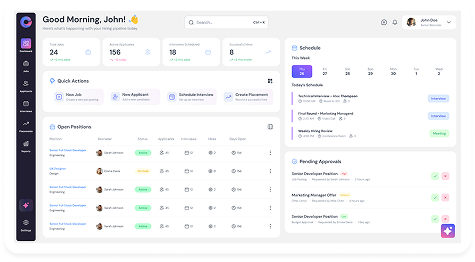Organizations rely on multiple vendors and contractors to fulfill their operational needs. Managing these relationships effectively requires specialized tools that streamline processes and ensure optimal outcomes. A Vendor Management System (VMS) provides the framework to handle these complex vendor relationships systematically.
Understanding VMS technology becomes crucial for businesses seeking to optimize their vendor relationships, reduce costs, and maintain compliance standards. This system serves as the central hub for all vendor-related activities, from initial selection through ongoing performance management.
Key Features of a VMS
Vendor Database Management
A robust VMS maintains comprehensive vendor profiles, including contact information, capabilities, certifications, and performance history. This centralized database enables quick access to vendor information and supports informed decision-making.
Contract Management
The system tracks contract terms, renewal dates, and compliance requirements. Automated alerts ensure contracts remain current and organizations avoid costly lapses or violations.
Performance Monitoring
VMS platforms provide analytics and reporting tools that measure vendor performance against established metrics. These insights enable data-driven decisions about vendor relationships and identify opportunities for improvement.
Workflow Automation
Streamlined approval processes reduce administrative burden and accelerate vendor onboarding. Automated workflows ensure consistent procedures and maintain audit trails for compliance purposes.
Benefits of Implementing a VMS
Cost Reduction
Centralized vendor management eliminates redundant processes and enables better negotiation leverage. Organizations typically see significant cost savings through improved contract terms and reduced administrative overhead.
Enhanced Compliance
The system maintains documentation and ensures adherence to regulatory requirements. Automated compliance tracking reduces risk and supports audit readiness.
Improved Vendor Relationships
Clear communication channels and performance metrics foster better vendor partnerships. Regular feedback mechanisms help vendors understand expectations and improve service delivery.
Operational Efficiency
Streamlined processes reduce time-to-hire for contingent workers and accelerate project delivery. Teams spend less time on administrative tasks and more time on strategic activities.
Challenges and Considerations
Implementation Complexity
Deploying a VMS requires careful planning and change management. Organizations must allocate sufficient resources for training and process adjustment.
Data Migration
Transferring existing vendor data into the new system can be time-consuming and requires data cleansing efforts. Accurate data migration ensures system effectiveness from day one.
User Adoption
Success depends on user acceptance and proper utilization. Comprehensive training programs and ongoing support facilitate smooth adoption.
Oorwin: Your VMS Solution for Recruiting Needs
Oorwin delivers comprehensive vendor management capabilities specifically designed for recruiting and staffing organizations. The platform streamlines hiring processes, automates candidate screening, and provides collaborative tools that integrate seamlessly with existing HR systems.
Recruiters using Oorwin experience reduced time-to-hire through efficient candidate sourcing and automated workflows. The system supports custom job postings and maintains detailed vendor performance metrics, ensuring optimal recruitment outcomes.
Transform your vendor management approach with Oorwin’s specialized recruiting VMS. Enhance team collaboration, improve candidate experience, and achieve measurable improvements in your hiring efficiency.

